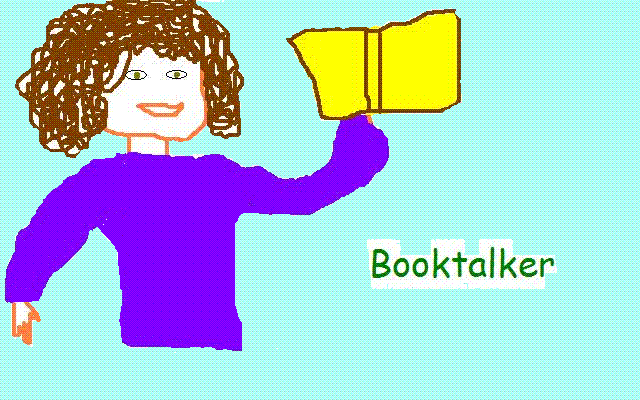| Booktalk
#1
Meet four young teenagers who
are each rebelling against their parents in their own way. Judd is
tired of his parents always telling him what to do. He decides to
run away so he can have control over his own life. Vicki is a tough
girl living in the trailer park with her drunken parents. When they
find religion, Vicki can't understand and wants to keep living her life
of parties, drinking and hanging out. Lionel is living a good life
in the burbs and enjoys going to church with his family although he doesn't
want to tell them that he doesn't really believe all of that stuff.
He'd rather be hanging out with his uncle Andre. Twelve-year-old
Ryan has a pretty good life as an only child. His best friend has
suddenly been trying to get Ryan to go to church. Ryan's family just
don't do that. Ryan isn't really sure he even believes. One
night changes everything. Just before midnight, people start disappearing.
Their clothes, jewelry and even their dental fillings are left behind.
It soon becomes clear that the promised Rapture has occurred and that these
four teens were left behind. Their families have been called but
not them. Join them as they try to understand THE VANISHINGS.
This is the first volume in the series Left Behind : The Kids.
Booktalk #2
Judd, Vicki, Lionel and Ryan
live in the same general neighborhood and attend some of the same schools,
but they’ve never met before. Judd and Lionel have even more in common
– both of them are children of Christian families who go to church regularly
every Sunday. Families who believe completely in the rapture - that some
day Jesus will return to take all of his followers to heaven, and those
who believe will disappear right in front of the non-believers. And despite
having been raised in such families, both Judd and Lionel do not believe.
They haven’t told anyone else, but they haven’t accepted Christ into their
hearts.
Vicki lives in a trailer park.
Up until recently her parents drank and smoked too much and fought all
the time. The family went on and off welfare in between her dad’s many
jobs. Then one night at a community dance her parents were saved. Now they
don’t drink, and her dad has kept his job – but they still live in a trailer
park, and the kids at school still call her trailer trash. Vicki refuses
to believe in a greater being who would let her family and her neighbors
continue to live in such poverty.
Ryan’s and Raymie live down
the street from one another and have been best friends for years. Ryan
has always been a little uncomfortable around Raymie’s mother however.
She’s really religious – she makes them pray over their food before meals
and she talks a lot about God. Ryan doesn’t quite know what to make of
her – or of Raymie when he suddenly starts spouting the same rhetoric.
Imagine their distress when
the rapture actually does happen. One minute life is going along like usual,
and the next millions of people are gone. They leave behind their clothes
and shoes, contact lenses, glasses and false teeth. If they’re driving
a car, the car suddenly has no driver. If they’re filming a child’s birthday
party suddenly most of the guests are gone. Those who are no longer here
are at peace – but there’s no such thing for those who, like Judd, Vicki,
Lionel and Ryan who are left behind.
(Susan Dunn, Colorado
Blue Spruce YA Book Award, 2003) |
